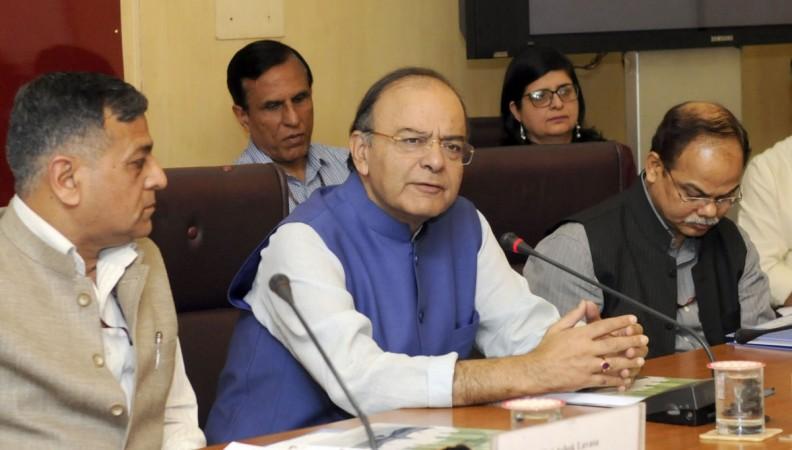
The Goods and Services Tax (GST) bill will be discussed for seven hours in Parliament without a lunch break on Wednesday, March 29. The debate will be on four GST bills, which were approved by the Union Cabinet led by Prime Minister Narendra Modi.
Finance Minister Arun Jaitley said that consensus has been broadly created for the bill, which was tabled by him in Lok Sabha.
While the BJP said that the GST Bill would ensure same tax for goods and commodities all over the state, the Congress raised questions saying that "one nation, one tax" is a myth.
1:56 pm IST: AIADMK MP Venkatesh Babu said Tamil Nadu supports GST.
1:52 pm IST: Tamil Nadu has been in the forefront in protecting rights of states and fiscal autonomy, said Venkatesh Babu, AIADMK MP.
1:45 pm IST: It's quite clear a manufacturing state like Tamil Nadu will permanently lose revenue if GST is implemented, said Venkatesh Babu. India is an agrarian economy, GST bill doesn't affect agriculture, but cost of agricultural inputs will go up.
1:40 pm IST: "We should work towards GST deadline of 1 July, it will be a landmark," Finance Secretary Ashok Lavasa.
1:29 pm IST: GST will lead to transparency and growth, said Raj. Everything will be online there will be no human intervention. Nobody can violate the law like this.
1:27 pm IST: This is a blessing for non-manufacturing states, said Raj.
1:21pm IST: GST Council will not be under pressure from Centre, says BJP MP Udit Raj.
1:08 pm IST: Kerala FM raised a valid issue that coconut oil should not be categorised as hair oil but as edible oil, said Veerappa Moily, Congress.
1:04 pm IST: One nation, one tax is a myth. 40% of tax provisions removed from GST, said Moily.
1:02 pm IST: What was the need for new GST agricultural tax?, said Veerappa Moily.
12:59 pm IST: Is it not the responsibility of the judiciary to ensure legislature independence? said Moily. We are not vigilant either in the judiciary or executive. When Donald Trump gave immigration ban federal court banned it.
12:56 pm IST: GST Council is only a coordinating body not an executive body, said Moily.
12:54 pm IST: Inter-state taxation will lead to compliance difficulties, said Moily.
12:53 pm IST: Government should desist from putting too many goods under 18 percent tax bracket. There are seven rates including cess, surcharge, exemption, etc. It will defeat the object of GST. Nobody can call it a gamechanger. This is only a baby step forward. Not a great reform which will be a gamechanger, said Moily.
12:51 pm IST: Moily calls anti-profiteering provision draconian.
12:40 pm IST: "Who has been the loser here? the people of this country. We are still here for the interest of the people. The government is depriving us of a voice, and that is a sin in Lok Sabha," said Moily.
12:35 pm IST: Congress MP from Karnataka Veerappa Moily calls it a "historic reform". "Of course, GST must have been implemented under the Congress but couldn't pass it due to Opposition," he said. Rs 1.5 lakh crore loss to the exchequer in last eight years over delay in rolling out GST, Moily claims.
12:30 pm IST: States have pooled in their sovereignty into the GST council, and Centre has done the same, said FM Jaitley.
12:20 pm IST: Central GST law will integrate taxes on goods and services. The council will decide the amount of tax. SGST law will go to the 31 Vidhan Sabhas.
Integrated GST would deal with import and inter-state trade tax. The UTGST will deal with union territory GST law, territorial waters beyond, and would incorporate laws in SGST law.
If any state faces a loss during the first five years due to GST, the compensation will be paid through multiple taxation brackets on commodities and goods.
First tax slab is zero. Next is 5 percent, the third is 12 or 18 percent. High commodities- 28 percent.
Many goods that have adverse effects on health and luxury vehicles have high taxation like 60 percent or 40 percent, respectively.
The fifth law will put the difference between the tax on high commodities and sin or luxury commodities in the compensation fund. It will be given to states facing a loss for the first five years of implementation.

















